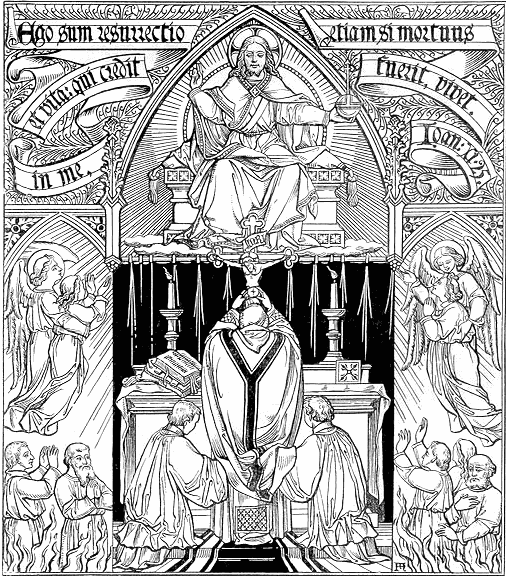Humility is not
self-contempt but the truth about ourselves coupled with a reverence for
others; it is self-surrender to the highest goal.
Fulton Sheen Thoughts for Daily Living, 1955: 121
Last week
the Gospel presented us with two people, a Pharisee and a tax-collector: one
was a religious expert, a pillar of society, the other someone hated and
despised. And yet, on the inside they were completely different – one was
self-righteous, arrogant and full of himself, the other knew his need of God’s
love and mercy. They show us what not to be and what we should be, and this
week we see another one.
Zacchaeus is a chief tax collector; he
is someone who was hated, who has got rich by over-charging people. He starts
off just being curious – he wants to see what all the fuss is about, he wants
to see Jesus. He can’t see over the crowds so he climbs up a sycamore tree.
When Jesus sees him, he tells him to come down quickly as Our Lord has to stay
at his house today. He hurries down and welcomes Jesus with joy, he’s glad
to see Him, to welcome Jesus into his house.
The crowd are a bit miffed – they say,
‘Ooh … look at Him, what’s he going to that man’s house for?’ They just can’t
see beyond outward appearances, they judge him – they just see a sinner, they don’t
see someone who wants to see Jesus and love Him. The simple presence of Jesus has
a transformative effect on Zacchaeus, he gives away half of his property to the
poor and promises to repay those whom he has defrauded and to give them compensation.
The Son of Man has come to seek out and save the lost – to show people that there
is another way. This is the love of God in action – this is what happens on the
Cross – God shows us the transforming power of His love, love shown to the un-loveable,
so that they might become lovely.
It is an idea which can be found in scripture
– this morning’s first reading shows us that God is loving and merciful, and that
God’s love and mercy can have an effect on our lives, if we trust in Him, if we
invite Him in, so that his transforming love can be at work in our lives, and ‘may make you worthy of his calling
and may fulfil every resolve for good and every work of faith by his power, so
that the name of our Lord Jesus may be glorified in you, and you in him,
according to the grace of our God and the Lord Jesus Christ.’ (1Thess 1:11–12) It is through God’s
grace, an undeserved gift, that people like Zacchaeus can be transformed, transformed
by God and for God, and what was true for him is true for us, here, today.
That is why, as Christians, we pray,
why we come to Mass each and every week to be fed by word and sacrament, so
that God’s grace and transforming love may be at work in us, transforming our
nature, making us more like Him. Everything that we say or think or do in our lives
needs to be an outworking of our faith, so that our exterior life and our
interior life are in harmony with each other – so that our lives, like St
Paul’s, may proclaim the Gospel. This is what we are called to, and how we are
to live. Unless we start from the point where we know our need of God and rely
upon him, where we too make that space where God can be at work in us, in our
souls and our lives, we are doomed.
Is
this the kind of life we really want to lead? Is this really the path of human
flourishing? Or are we called to something better, something greater, something
more lovely? So let us put our trust in the God who loves us and who saves us,
let us know our need of him and his transforming grace to fill our lives and
transform all of his creation so that the world so that it may believe and be
transformed to sing the praise of God the Father, God the Son, and God the Holy
Spirit, to whom be ascribed as is most right and just all might, majesty,
glory, dominion, and power, now and forever.


